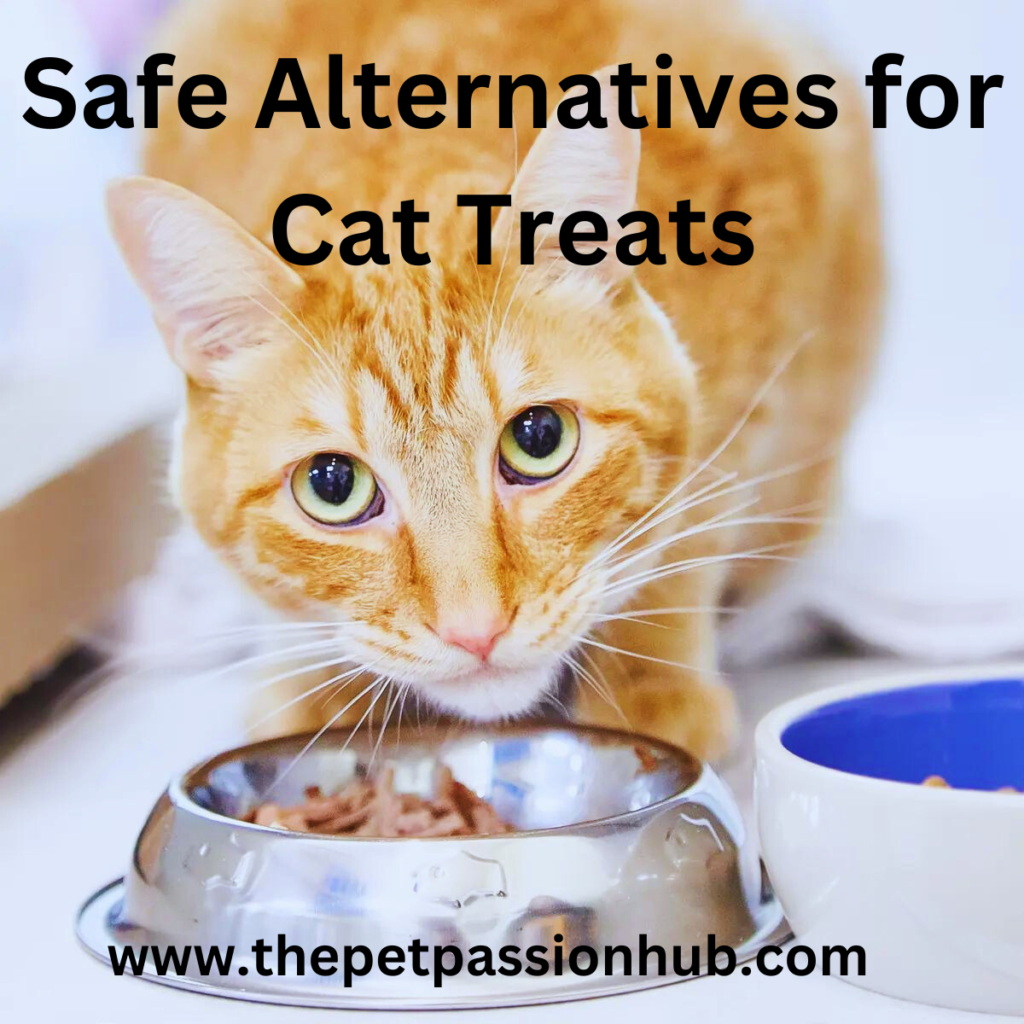Introduction
Are you a cat owner who loves snacking on dried mango and has wondered whether your feline friend can join in on the tropical treat?
The question of whether cats can safely eat dried mango is one that has perplexed pet owners for years.
As curious creatures with unique dietary needs, it’s important to delve into this topic to ensure the well-being of our beloved furry companions.
In this article, we will explore the intriguing world of feline nutrition and uncover the truth behind whether dried mango is a safe addition to your cat’s diet.
From examining the potential benefits of dried mango to understanding any potential risks or adverse effects, we’ll provide a comprehensive analysis backed by expert opinions and scientific research.
So if you’ve ever pondered about sharing your favorite snack with your whiskered companion.
Join us as we embark on a journey to find out if cats can indeed enjoy the delightful flavors of dried mango without compromising their health.
Find Out Truth: If Cats Can Safely Eat Dried Mango!
Exploring Cats’ Dietary Preferences
As we delve into the intricate world of feline nutrition, one cannot help but wonder about cats’ dietary preferences and how they may differ from our own.
The thought of introducing dried mango to a cat’s diet might be intriguing, but it’s important to explore the potential risks associated with this decision.
While cats are obligate carnivores, meaning their diet primarily consists of meat, they may exhibit an occasional fondness for exploring non-meat options.
However, introducing dried mango into a cat’s diet should approached with caution, as it may pose potential health risks.
When considering the potential risks of feeding dried mango to cats, it is crucial to take note of its high sugar content.
Cats lack the necessary enzymes to effectively break down and metabolize sugars and carbohydrates found in fruits like mangoes.
With excessive consumption, this could lead to digestive issues and potentially contribute to obesity in cats.
Additionally, some fruits including mango contain compounds that can be toxic or harmful for cats if ingested in large quantities.
This highlights the importance of understanding our feline companions’ unique nutritional needs while avoiding well-intentioned but potentially harmful dietary experiments.
Nutritional Analysis of Dried Mango
Dried mangoes offer a burst of tropical sweetness and often regarded as a healthier alternative to sugary snacks.
However, it’s essential to consider their nutritional profile before sharing this treat with our feline friends.
Dried mangoes are rich in vitamins A, C, and E, along with dietary fiber and antioxidants that promote overall well-being.

Despite their nutrient density, the high sugar content in dried mangoes could potentially pose risks for cats, especially those prone to diabetes or weight management issues.
While offering an occasional nibble of dried mango may not harm your cat, it’s important to exercise caution and moderation due to the fruit’s sugar concentration.
Understanding the nutritional analysis of dried mango allows pet owners to make informed choices about including this snack in their feline companion’s diet.
While cats require a primarily protein-based diet supplemented with essential nutrients from meats and specialized cat food formulas, incorporating small amounts of certain fruits can be safe if done thoughtfully.
When considering introducing dried mango into your cat’s diet, consulting a veterinarian or animal nutritionist.
It is crucial for ensuring the best possible health outcomes for your furry friend amidst the temptation of tasty human treats like dried fruits.
Understanding Cats’ Digestive Systems
Cats’ digestive systems uniquely designed to process a diet high in protein and low in carbohydrates.
Unlike humans, cats lack the necessary enzymes to break down certain carbohydrates, making it challenging for them to digest plant-based foods effectively.
Their short digestive tracts and acidic stomachs allow for the rapid breakdown of raw meat, which is their primary source of nutrition in the wild.
Furthermore, cats have a limited ability to taste sweetness due to the lack of specific taste receptors on their tongues.
This preference for savory flavors aligns with their natural carnivorous diet and helps explain why they may not be particularly drawn to sugary fruits like dried mangoes.
Understanding these nuances in cats’ digestive systems can help pet owners make informed decisions about what foods are safe and appropriate for their feline companions.
Potential Risks for Cats Consuming Dried Mango
While dried mango may seem like a harmless treat, there are potential risks for cats consuming it. The high sugar content in dried mango can lead to obesity and dental issues in cats if consumed in large quantities.
Moreover, the natural sugars present in the fruit can cause digestive discomfort and diarrhea in some cats. Especially those with sensitive stomachs.
Additionally, some dried fruits contain sulfur dioxide as a preservative. Which can be harmful to cats if ingested in large amounts.
This chemical compound can lead to vomiting, respiratory issues, and even allergic reactions in felines.
It’s crucial for cat owners to be cautious about offering dried mango to their pets. And consider safer alternatives that align with their furry friend’s dietary needs.
5 Adorable Reasons Why Cats Love Sleeping Under Blankets!
Expert Opinions and Research Findings
Expert Opinions and Research Findings on the topic of whether cats can safely eat dried mango have sparked a lively debate in the veterinary and feline nutrition communities.
While some experts argue that small amounts of dried mango may be safe for cats due to its vitamin-rich content, others caution against it. Due to the high sugar content and potential gastrointestinal upset it may cause for our feline friends.
Dr. Sophia Lee, a renowned feline nutritionist, emphasizes that each cat’s digestive system is unique. And advises pet owners to consult with their veterinarian before introducing any new foods into their cat’s diet.
Recent research findings have also shed light on the potential risks associated with feeding dried fruits to cats.
A study published in the Journal of Feline Veterinary Science highlighted the increased incidence of dental issues among cats fed with sugary or sticky treats, raising concerns about the impact of sugary snacks like dried mango on a cat’s oral health.
This points towards the importance of understanding not only the nutritional value. But also the physiological impact of certain human foods on our feline companions before incorporating them into their diets.
As we navigate through conflicting opinions and evolving research findings. It becomes evident that a cautious approach coupled with expert guidance. It is crucial in making informed decisions regarding our precious pets’ dietary choices.
Safe Alternatives for Cat Treats
When it comes to finding safe alternatives for cat treats, there are plenty of options to consider.
One great choice is freeze-dried meat treats, which provide a high-protein, low-carbohydrate snack option that mimics cats’ natural diet.
Another safe alternative is catnip-flavored treats. Which can provide a fun and stimulating experience for your feline friend without any added sugars or artificial ingredients.

Additionally, many pet owners have found success with offering small pieces of cooked fish or poultry as occasional treats for their cats.
These natural protein sources can be a healthy and satisfying option for cats. While avoiding the potential pitfalls of traditional commercial treats.
It’s important to remember that moderation is key when introducing new foods into your cat’s diet. So be sure to consult with your veterinarian before making any drastic changes.
Conclusion: Best Practices for Feeding Cats
In conclusion, when it comes to feeding cats. The best practice is to provide a balanced diet that meets their nutritional needs.
This includes a mix of high-quality commercial cat food, with both wet and dry options available.
Additionally, incorporating occasional treats such as small pieces of dried fruit like mango can be safe. As long as it’s done in moderation.
However, it’s essential to avoid feeding cats any human foods that are toxic or harmful to felines, such as chocolate, onions, garlic, and grapes.
Furthermore, ensuring that cats have access to fresh water at all times is crucial for their overall health.
Hydration plays a significant role in preventing urinary tract issues and keeping cats well-hydrated.
Finally, monitoring portion sizes and body condition is important in maintaining an ideal weight for your feline companion.
By following these best practices for feeding cats. You can ensure that they lead happy and healthy lives while enjoying a varied and nutritious diet.
FAQs
- Can cats safely eat dried mango?
– No, it is not recommended to feed dried mango to cats as it can cause digestive issues. - What are the potential risks of feeding dried mango to cats?
– Dried mango can cause upset stomach, diarrhea, and potentially allergic reactions in cats. - Are there any health benefits for cats from eating dried mango?
– There are no significant health benefits for cats from consuming dried mango. - Can a small amount of dried mango be given as a treat to cats?
– It’s best to avoid giving any amount of dried mango to cats as it may lead to digestive problems. - Is fresh mango safe for cats to eat?
– Fresh mango should also be avoided as it contains natural sugars that can upset a cat’s stomach. - Are there alternative fruits that are safe for cats to eat?
– Yes, some safe fruits for cats include small amounts of blueberries or watermelon without seeds. - What should I do if my cat accidentally eats dried mango?
– Monitor your cat for any signs of illness and consult with a veterinarian if you notice any unusual symptoms. - How can I ensure my cat’s diet is balanced and healthy without including dried mango?
– Stick to a diet specifically formulated for feline nutrition and consult with a veterinarian about suitable treats for your cat.
